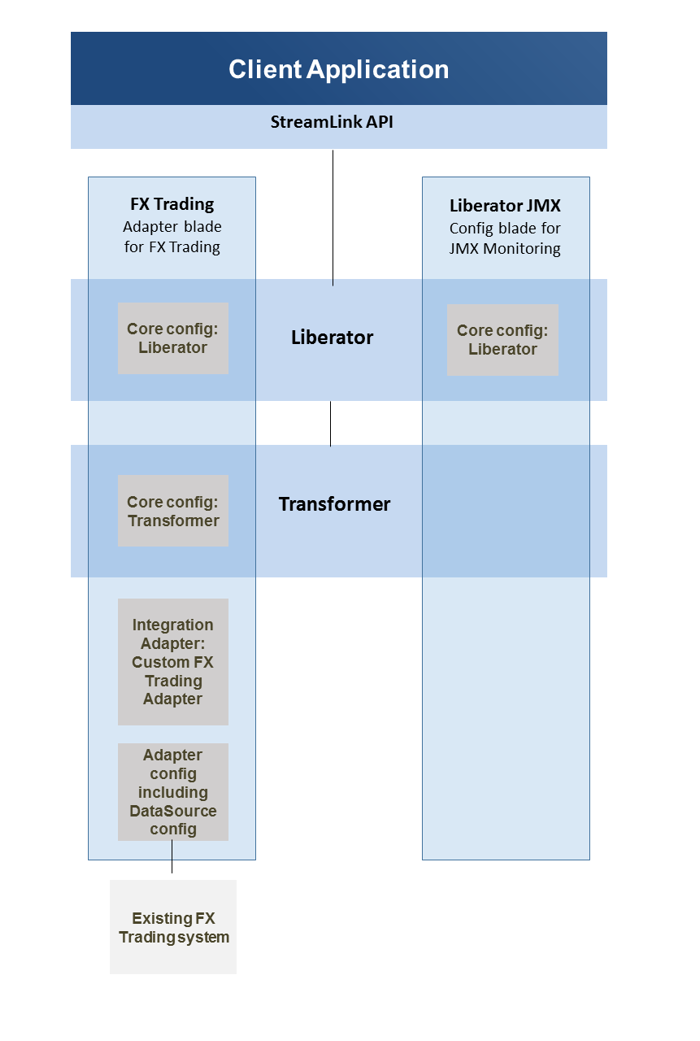Platform Blades
Blades are used throughout Caplin’s solutions. A blade is a re-usable software module that contains the code and resources needed to implement a business or technical feature. The Caplin Platform makes use of blades to implement features.
| You can also build a Caplin Trader application using blades. See here for more on this. |
A Platform blade is any blade that forms part of the Caplin Platform, and therefore resides on the server. There are three types of Platform blade:
-
Config blade: This type of blade consists solely of configuration for the Platform’s core components (Liberator and/or Transformer).
-
Adapter blade: This type of blade connects to, and supplies data to, a Liberator and/or Transformer. It consists of:
-
An Integration Adapter (an executable binary file). Integration Adapters can be written in Java using the Caplin Integration Suite, or in C using the C DataSource API.
-
Configuration for the Adapter (including its DataSource configuration).
-
Configuration for the core components (Liberator and/or Transformer). This configuration enables the Adapter to exchange data with these core components.
-
-
Service blade: This type of blade contains a module written in C, Java, or Lua that is to be loaded into one of the core components; for example, a permissioning auth (authorisation) module that’s loaded into Liberator, or Transformer’s Refiner (filtering and sorting) service.
Here’s an example showing how two Platform blades are structured; an Adapter blade for FX Trading, and a Config blade for JMX Monitoring:

Sometimes the implementation of a particular feature requires more than one blade, but a blade will never provide more than one feature. You can switch a feature on and off by activating and deactivating the blade or blades that provide it. The Caplin Platform Deployment Framework is supplied with several built-in configuration-only blades. The Framework also provides configuration that supports failover of components.